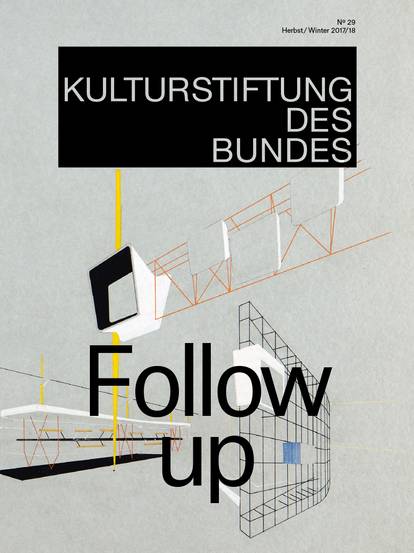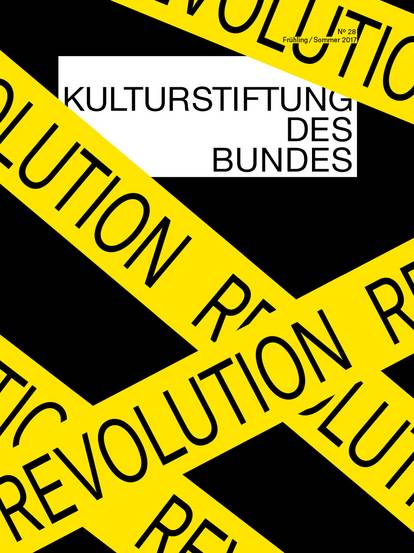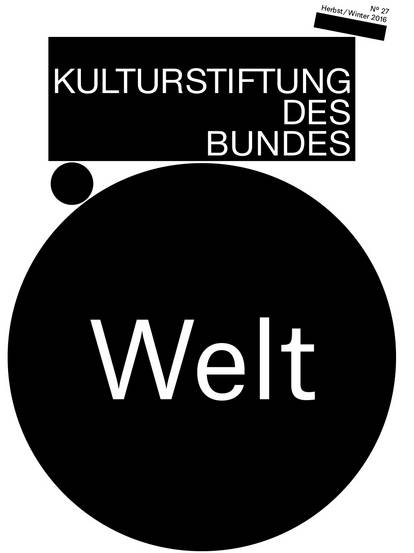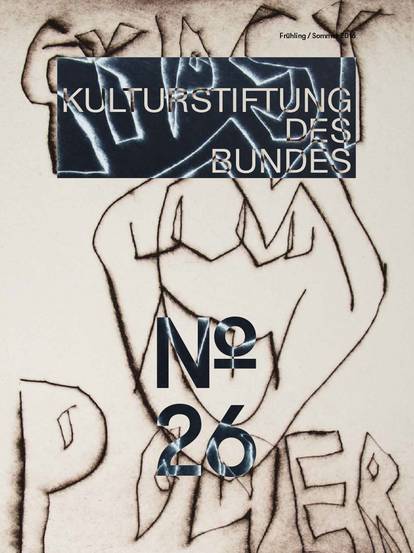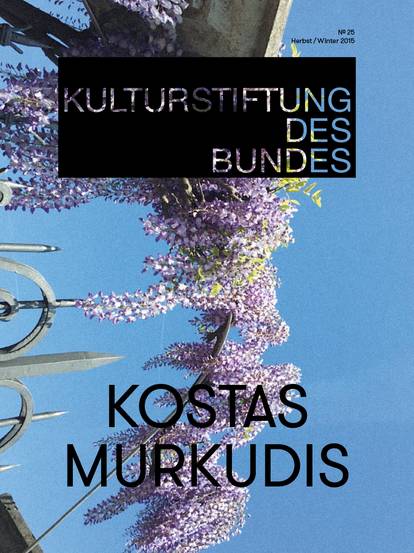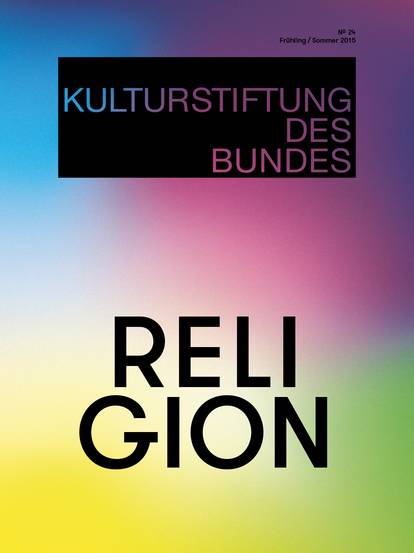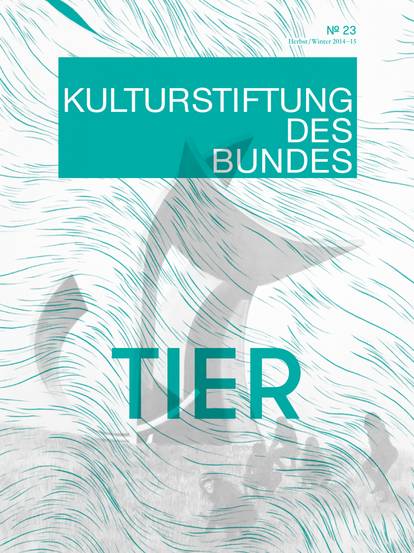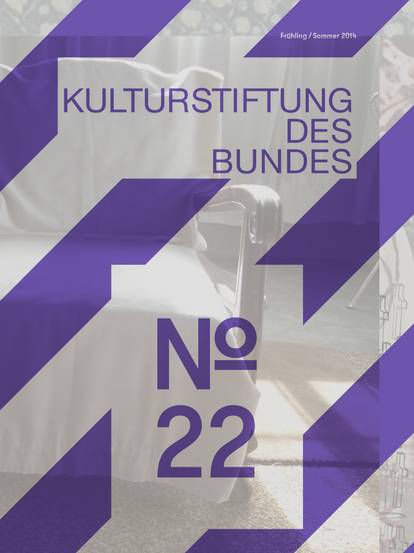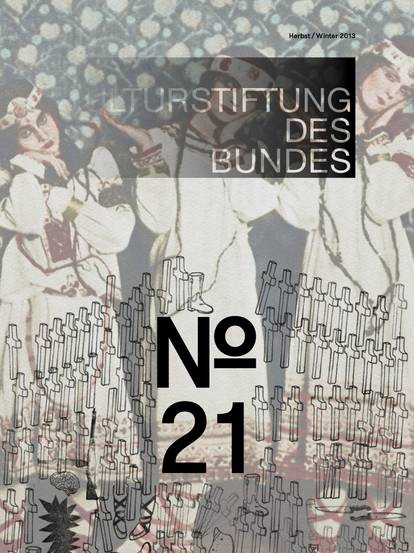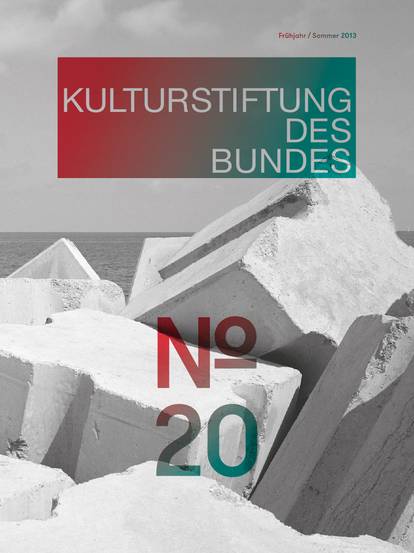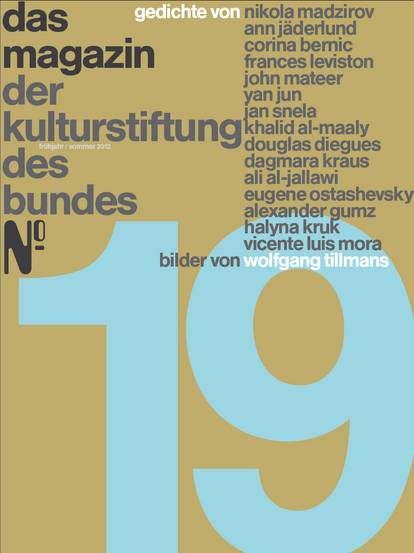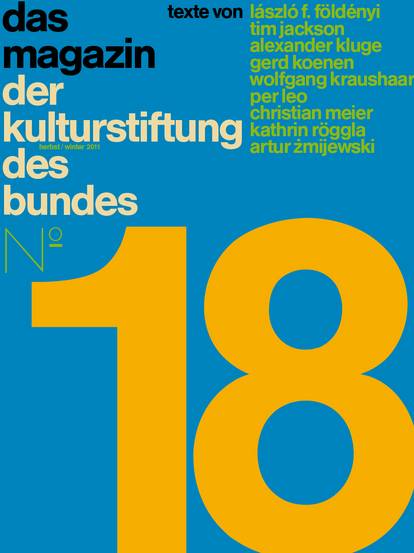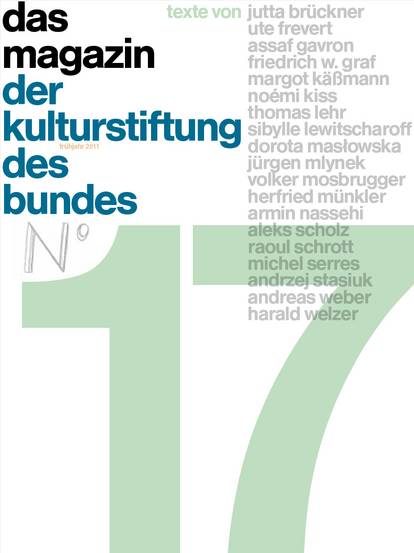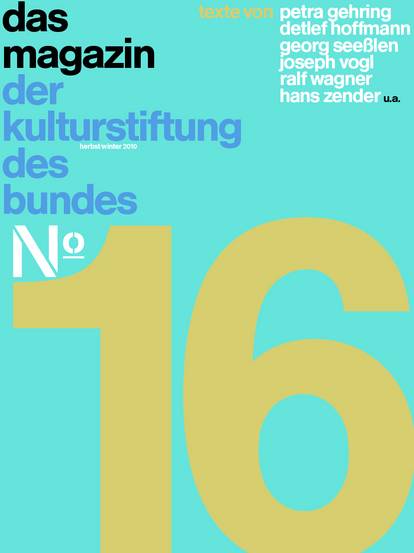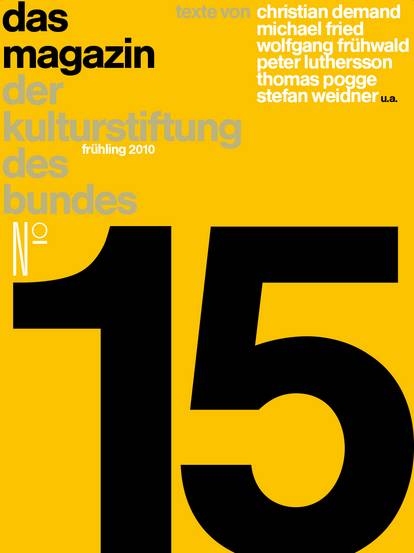“I am more interested in the future than the past, because I intend to live in it.” This was Albert Einstein’s view of tomorrow. We, too, regard the German Federal Cultural Foundation as a workshop of the future. We are even considering starting a new programme titled Life in the Future. Of course, such a programme would take years in the making, but we want to set the stage for what may come. The Federal Cultural Foundation has initiated three projects to prepare for our future endeavours in the next decade.
AGENTS – For the Audience of Tomorrow is the first project in which we venture in new directions in the field of cultural education. We wish to support dedicated cultural educators and give them freedom to forge new alliances between schools and cultural institutions. The museums, theatres and concert halls in Germany are all looking for their audience of tomorrow. Our schools need new partners in their regions. We support agents of culture who can form a close relationship between young audiences and cultural organizations in an innovative way.
Our second future-oriented project is called Über Lebenskunst. Initiative for Culture and Sustainability. Its concept is to focus on productive ways society as a whole can respond to the calamitous effects of climate change – without inciting panic or shirking responsibility. We are looking for a 21st-century lifestyle that does not endanger human survival on our planet. We want to combine art and culture, science and social practice in such a way that we gain new perspectives on environmentally sustainable existence. Together with the House of World Cultures, we plan to hold a theme-based festival in Berlin in summer 2011 to introduce audiences of all ages and walks of life to this issue.
People are undyingly enamoured with the idea of immortality. Most of us would agree that the only ones capable of such a victory over death are heroes and monsters. That is why our third future-oriented project, Of Heroes and Monsters, addresses a debate that involves much more than simply the issue of immortality. Describing the anthropological threshold of our times, Wolfgang Frühwald claims that “the obviously desired and planned creation of the perfect human is now within our reach, i.e. technically feasible.” In pop culture, however, we have long crossed this threshold. The fascination with the perfect human has become a mass phenomenon, which, as Frühwald points out in his article, is exemplified by vampire fever, the return of the undead and the success of the book and film series Twilight. The Federal Cultural Foundation hopes to explore this phenomenon in more detail at the festival Of Heroes and Monsters, scheduled to take place in Leipzig next year.
The other writers in this issue also examine what life in the future may look like. As part of our event series Philosophy:Art, Christian Demand examines the philosophical ramifications of “good form” and beauty as a “timeless quality” in the field of design. He confirms the failure of every “authoritative theory of refined taste,” praises the exciting “tumult of conflicting forms” and comes to the sober conclusion that “there is simply no single lifestyle of our time”. Rainer Werner Fassbinder would have probably held the same opinion. Rainer Rother and Jan Distelmeyer offer two different interpretations of Fassbinder’s film World on a Wire. Thirty years after its original television airing, the film material was in such poor condition that the Rainer Werner Fassbinder Foundation had no alternative but to digitally restore it with funding provided by the Federal Cultural Foundation. From now on, Fassbinder’s science-fiction drama will confront viewers with its existential questions in crystal-clear, digital quality – “Who’s to say that we aren’t a computer ourselves - you, me, everyone here?”
As always we’ve included several pieces which provide an overview of our activities and highlight several important projects that the Federal Cultural Foundation is currently funding. For example, the 6th Berlin Biennial for Contemporary Art this summer which, under the direction of Kathrin Rhomberg, will focus on combining contemporary trends with historic positions. Michael Fried reports on the Adolph Menzel exhibition – also featured at the Berlin Biennial – along with photos by Michael Schmidt, some of which we’ve included in this issue. Stephan Weidner, who is currently a guest professor at the German Translator Fund, financed by the Federal Cultural Foundation, objects to the general “dictates of understanding” by extolling the virtues of “not understanding”. Using translations of the Koran as the basis of his argument, he asserts that in today’s media-based discourse and interpersonal relationships, the “depletion” of everything that might be viewed as difficult to comprehend – a trend that threatens our imagination and power of deduction to an equal degree. When debating cultural differences, any “productive dissatisfaction” we feel in our efforts to understand them is a thousand times more valuable than the flaccid complacency expressed in global assertions of understanding. Christian Schlüter interviews Thomas Pogge about new Cultures of Economics, which is also the name of a series of conferences in Berlin, funded by the Federal Cultural Foundation. According to Pogge, the financial crisis and climate change demonstrate how the “market has failed miserably” and why it is necessary “to permanently change our way of life.” He argues that part of the solution must include new, globally binding market regulations that serve the common good.
In an essay that includes several moving poems, Peter Luthersson writes about the Jewish poet Nelly Sachs who spent most of her life in Stockholm. The Jewish Museum Berlin is now honouring the famous Nobel Prize winner in an exhibition titled Flight and Metamorphosis – Nelly Sachs, Writer Berlin/Stockholm. Manuel Gogos complements this piece with his own article about Jewish life in Germany today. An exhibition at the Jewish Museum Frankfurt am Main illustrates how Germany of All Places! became the single-most important country of immigration for Russian Jews following German reunification. They didn’t come as asylum seekers, but invited guests who are now defining the “contours of a new European Judaism” which fosters cultural exchange between Berlin, New York and Tel Aviv. The Arabic port city of Jaffa near Tel Aviv happens to be the setting of the exciting film Ajami, described by Christina Bylow. The film portrays the city quarter of Ajami in Jaffa, a part of town in a permanent state of emergency. Among violent conflicts between Muslims, Jews and Christians, powerful real estate speculators exploit the inhabitants and threaten the dynamically vibrant quarter of Ajami day after day. The World Cinema Fund (WCF), co-founded by the Federal Cultural Foundation, supported Ajami which has garnered numerous awards like so many other films it has financed in the past. Already a cult film in Israel, Ajami was nominated for an Oscar in the category “Best Foreign Language Film”.
Hortensia Völckers / Alexander Farenholtz [Executive Board of the Federal Cultural Foundation]

![[Translate to English:] Magazine 38](/fileadmin/_processed_/f/1/csm_Magazin38_Cover-Vorschau_921x1230_689f428dc3.jpg)
![[Translate to English:] Magazine 37](/fileadmin/_processed_/b/c/csm_Mag37_Cover-Vorschau_921x1230_b5129fdb2a.jpg)
![[Translate to English:] Magazine 36](/fileadmin/_processed_/2/a/csm_Cover_Magazin36__issuu_2f3cef97bb.jpg)
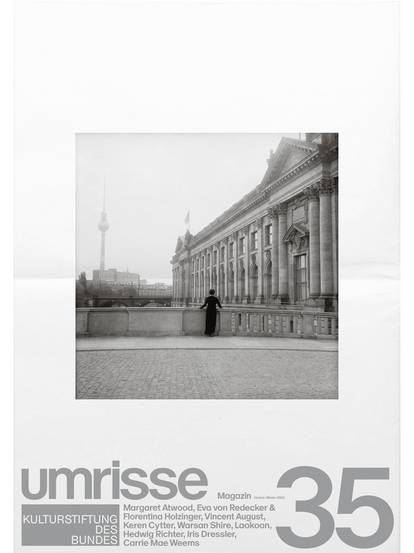
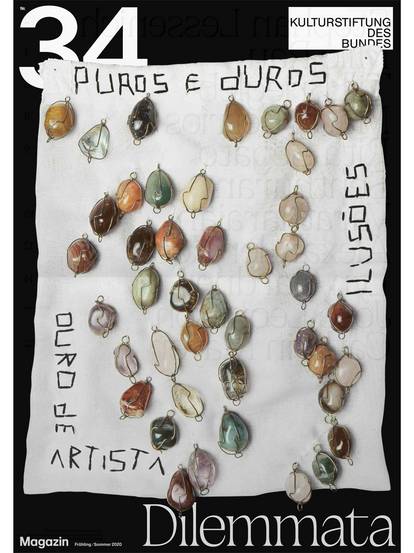
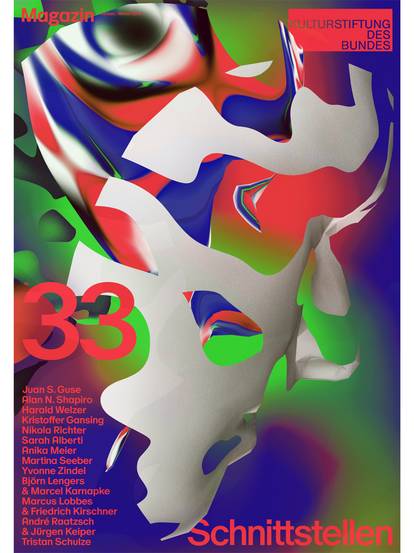
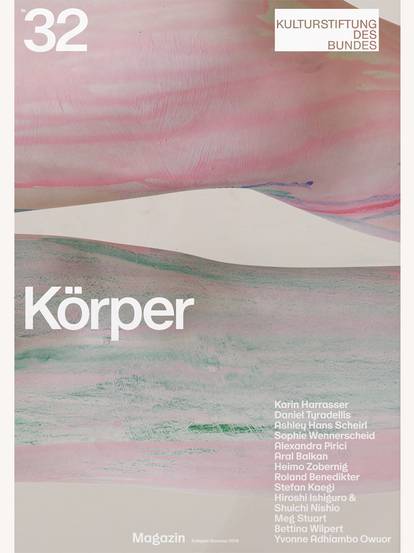
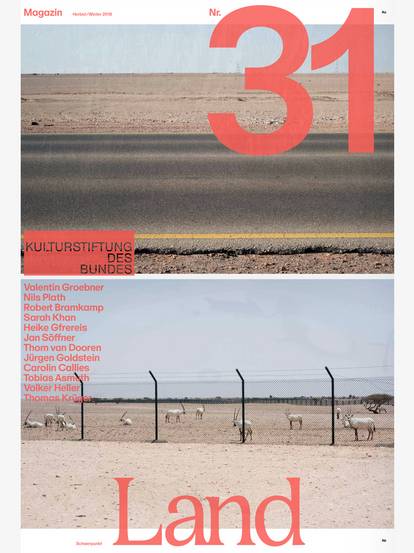
![[Translate to English:] Magazine 30](/fileadmin/_processed_/c/b/csm_magazin30_vorschau_9005f773d3.jpg)
